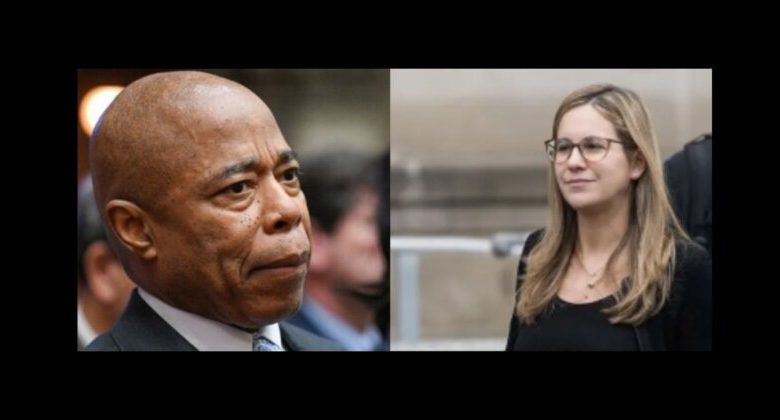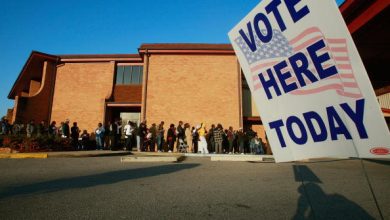Is America In A Constitutional Crisis? Inside The DOJ And SDNY Resignations In Eric Adams Case

From the outside looking in and from the inside looking in, the United States seems to be in turmoil–with massive federal employee firings, federal department audits being conducted by special White House advisor (and sometime leader of DOGE) Elon Musk and his cadre of twentysomething-year-old computer programmers, lawsuits being filed against the Trump administration over constitutional breaches. The U.S. is grappling with the notion of a “constitutional crisis” as political, legal, and ethical boundaries appear to blur. It’s even odder that the constitution can no longer be found on the White House’s website.
The recent resignations of top officials at the Department of Justice (DOJ) and the Southern District of New York (SDNY) following the DOJ’s directive to drop corruption charges against New York City Mayor Eric Adams has ignited debate about the very integrity of the rule of law. What started as a mere investigation into corruption has escalated into a flashpoint, drawing comparisons to the President Nixon administration’s Watergate scandal, which brought down a president.
At the heart of this controversy is a memo issued by the acting Deputy Attorney General, Emil Bove, which ordered federal prosecutors in New York to abandon their investigation into Mayor Adams. Bove’s rationale: Continuing the case would interfere with the mayor’s efforts to address critical issues like crime and immigration. Many observers say the implications of this directive are far-reaching, raising questions about political influence over the legal system, according to a release from the House Committee on the Judiciary.
The decision to halt the investigation caused outrage in the DOJ. Danielle R. Sassoon, the acting U.S. Attorney for the Southern District of New York, resigned in protest, stating her belief that the charges should not be dismissed, especially given new evidence of Adams’ alleged misconduct.
In Sassoon’s letter to Attorney General Pamela Jo Bondi, she expressed her “serious concerns” about a directive to dismiss the indictment against Adams. Sassoon argues that the proposed dismissal is “inconsistent with my ability and duty to prosecute federal crimes without fear or favor.” She states that the evidence against Adams “proves beyond a reasonable doubt that he committed federal crimes,” and that Acting Deputy Attorney General Bove “rightly has never called into question that the case team conducted this investigation with integrity and that the charges against Adams are serious and supported by fact and law.”
Sassoon disputes the claim that the former U.S. Attorney’s conduct warrants dismissal. She stressed that the line prosecutors acted “with integrity and in the pursuit of justice,” and that Williams’s role was “even more minimal than I had assumed.”
Sassoon’s resignation was followed by several other high-ranking DOJ officials, including Kevin O. Driscoll and John Keller. Fellow elected Democrats and the public are now calling–and protesting for–Adams resignation. Meanwhile Adams has hinted he may run again for mayor under the Republican ticket.
Adams, who has been criticized for cozying up to Trump, is now at the center of a growing political firestorm with his political future now uncertain.
As the situation unfolded, some commentators, including MSNBC’s Jen Psaki, urged Democrats not to prematurely cry “constitutional crisis,” Fox News reported. Psaki, a former Biden administration press secretary, warned against the overuse of the phrase, advocating instead for a focus on how policies directly affect communities. She suggested that the term “constitutional crisis” could alienate voters by sounding too academic or detached from real-world concerns.
She cautioned that the Democratic Party’s focus should be on people who rely on crucial public services, not on the rhetorical battle over abstract terms like “authoritarianism” and “constitutional crisis,” Vox reported. That this will not be understood by many voters, especially MAGA voters who the Dems need to find a way to reach.
Yet, as some legal analysts argue, we may be closer to a crisis than we think. Legal experts have pointed to a series of executive actions by the Trump administration that appear to disregard constitutional norms– including attempts to roll back birthright citizenship, bypassing Congress on funding decisions, to the firing of federal employees.
If we did look back at the Watergate scandal, it could be compared to today. Nixon’s attempt to use the government’s power for personal gain ultimately led to his resignation. Think about Nixon’s controversial actions to cover up the break-in at the Democratic National Committee headquarters. They can be compared to Trump’s actions in office — especially his attempts to remove FBI agents who investigated the January 6 Capitol riot.
But Nixon’s ouster was due to bipartisan calls for his impeachment. Trump, however, still seems to have not just MAGA but most Republicans in his pocket.
Speaking of the possible purge of FBI officials who were involved in investigating the January 6th Capitol attack could have potential implications for national security, The Washington Post reported. According to Vanni Cappelli, a national security expert, an FBI purge could have dire consequences for America’s security in pointed out in a piece for The Post Gazette.
As the resignations of DOJ and SDNY officials make headlines and spark debate among political talking heads, the question remains: Is America in a constitutional crisis? While many legal experts have stopped short from making such a definitive statement, the ongoing political moves by the Trump team are undeniably troubling.




